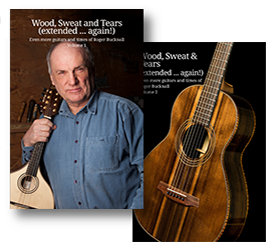
Please note: due to changes in regulations and constant design developments, we sometimes need to change details such as binding and inlay materials.
- Custom Guitars
Gallery 1: Falstaff & Others
Gallery 2: Falstaff & Others
Gallery 3: Alexander & Others
Gallery 4: Alexander & Others
Gallery 5: Ariel & Others
Gallery 6: Ariel & Others
Gallery 7: Mandolins & Others
Gallery 8: Mandolins & Others
Gallery 9: Unique Instruments
Gallery 10: Unique Instruments
- Personal Selection
Gallery 11: Personal Selection
Gallery 12: Personal Selection
- PLAYERS
Players
Bands
Players Gallery
Player's Comments
Guitar as Art
The Art of the Guitar
- ARTISTS VIDEOS
The Fylde YouTube Channel
- The Workshop Videos
The workshop Videos
- STRINGS THAT NIMBLE LEAP
Strings That Nimble Leap - VIDEOS - FYLDESTOCK
Videos of the acoustic gig to beat all acoustic gigs (perhaps). - FYLDE AT FIFTY :
The Video
- Roger Bucknall
History
Profile
Philosophy
- Roger Bucknall ... a guitar maker's philosophy
Built by hand
Design
Materials
Manufacture
Skills and experience
End Grafts and Details
Finish
Final Assembly
- Roger Bucknall's notes from a workshop.
Guitar Maker or Luthier
Tuning
Zero frets and intonation
Bracing and voicing
Neck joint
Fingerboard bindings
Neck straightness & Eulers columns
Necks, heels and bodies
- The Workshop
The workshop in pictures






